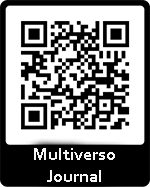The problem of truth discourse and post-truth in the framework of transitional justice. Philosophical reflections
DOI:
https://doi.org/10.46502/issn.2792-3681/2025.9.7Keywords:
truth discourse, transitional justice, post-truth, philosophical reflections, critical thinkingAbstract
Currently, the idea of truth has undergone significant changes in philosophy, largely motivated by information overload and the digitization of the media. Previously, truth was understood as the coincidence between facts and what was asserted, which served as the basis for social trust and the legitimacy of institutions. However, post-truth emerges as a concept that points to how individual emotions and beliefs prevail over verifiable facts when forming collective opinions. Thus, post-truth refers not only to the dissemination of false data, but also to a lack of social interest in truthfulness, weakening society's ability to differentiate between what is real and what is fictional. Given these concerns, the objective of the research is to analyze how the circulation of post-truth discourses can affect the search for justice and the reconstruction of historical memory in post-conflict societies. In the conclusions, the results obtained through the documentary method affirm that truth must be defended, in every place and at every moment, as a collective right and duty, integrating the voices of victims and historically excluded sectors.
References
Angenot, M. (2010). El discurso social: Los límites históricos de lo pensable y lo decible. Siglo XXI. https://acortar.link/cqi7s2
Comisión especial de justicia y paz/ Asamblea Nacional. (2019). La memoria histórica en los procesos de justicia transicional. https://justiciatransicional.org.ve/wp-content/uploads/2020/02/La-recuperación-de-la-memoria-histórica.pdf
Dussel, E. (2001). Hacia una filosofía política crítica. Bilbao: Editorial Desclee de Brouwer.
Foucault, M. (2002). Las palabras y las cosas Una arqueología de las ciencias humanas. Buenos Aires: Siglo veintiuno editores Argentina.
Grau, F. C. (2022). Del solipsismo argumentativo al ecosistema de controversias: apuntes para una epistemología dialógica. Ciencia Latina Revista Científica Multidisciplinar, 6(6), 5288-5299. https://doi.org/10.37811/cl_rcm.v6i6.3810
Habermas, J. (1999). Teoría de la acción comunicativa I. Madrid: Taurus.
Herreras, E., & García-Granero, M. (2020). Sobre verdad, mentira y posverdad. Elementos para una filosofía de la información. Bajo Palabra. II Época, (24), 157-176. https://doi.org/10.15366/bp.2020.24.008
ICTJ. (2013). Ignorando sus demandas de justicia, Sudáfrica fracasa ante las víctimas del apartheid. Justicia, verdad, dignidad. https://www.ictj.org/es/node/16387
Infante Barrera, C. M. (2025). Entre la noche y la niebla de un crimen sin nombre: Análisis de la posverdad en los “falsos positivos”. Derecho y Realidad, 22(43). https://doi.org/10.19053/uptc.16923936.v22.n43.2024.18763
Johnson, R. (2007). Historia de Sudáfrica El primer hombre, la última nación. Debate.
Lyotard, J.-F. (1989). La condición postmoderna. Informe sobre el saber. Madrid: Catedra.
Martínez, J. (2004). El Nihilismo en la metafísica de Nietzsche. Santiago: Universidad de Chile.
McIntyre, L. (2018). Post-Truth. Cambridge, MA: MIT Press.
Molero de Cabeza, L., & Cabeza, J. (2009). El poder, el querer y el protestar análisis sociolingüístico del discurso. Maracaibo: Universidad del Zulia.
Mora Méndez, B.L. (2018). Instrumentos de Justicia Transicional implementados en la desmovilización de grupos armados en Colombia. Nova et Vetera, 27, 8-29. https://doi.org/10.22431/25005103.500
Nietzsche, F. (2003). Obras inmortales I. Editorial Edicomunicacion.
Ortega-Ruiz, L., & García, J. (2019). La verdad en la justicia transicional. IUSTA, 1(50), 39-63. https://revistas.usantotomas.edu.co/index.php/iusta/article/view/4886/4601
Rorty, R. (1996). Objetividad, relativismo y verdad. Escritos filosóficos 1. Paidos. https://l1nq.com/ZRdhz
Sánchez, A. (2019). Sobre Verdad y Posverdad en sentido social. Ámbitos. Revista Internacional de Comunicación, (45), 224-237. https://l1nq.com/m63nj
South African History Online. (2018). Truth and Reconciliation Commission (TRC). https://sahistory.org.za/article/truth-and-reconciliation-commission-trc-0
Teitel, R., & Vegh, V. (2024). Transitional Justice and Human Rights. New Yorw Law School, (1661), 460-484. https://acortar.link/L9qQj4
Universidad del Rosario. (2023). La realidad de los derechos humanos en Colombia: desafíos y perspectivas. https://acortar.link/ZOMgAN
Valladares, L. (2022). Post Truth and Education. Science & Education, (31), 1311–1337. https://doi.org/10.1007/s11191-021-00293-0
Walsh, W. H. (1974). Introducción a la filosofía de la historia. Madrid: Siglo veintiuno de España editores SA.
Published
How to Cite
Issue
Section
License
Copyright (c) 2025 Jesús Alberto Monroy Lancheros

This work is licensed under a Creative Commons Attribution 4.0 International License.
The authors who publish in this journal agree to the following terms:
The authors retain copyright and guarantee the journal the right to be the first publication where the article is presented, which is published under a Creative Commons Attribution License, which allows others to share the work prior to acknowledgment of the authorship of the article. work and initial publication in this journal.
Authors may separately enter into additional agreements for non-exclusive distribution of the version of the work published in the journal (for example, placing it in an institutional repository or publishing it in a book), with an acknowledgment of its initial publication in this journal.



















